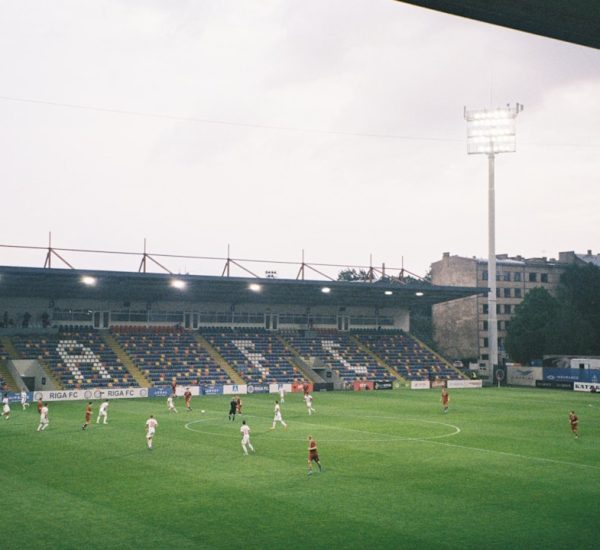In recent years, technological advancements have drastically transformed the way athletes train, coaches plan, and teams compete. Among the driving forces behind this transformation is Artificial Intelligence (AI), and one of the most dynamic players pushing boundaries in this field is LFG Sports AI. This innovative platform is revolutionizing sports performance analysis and game strategy, offering insights that were once the preserve of seasoned coaches and scouts. With big data and machine learning at its core, LFG Sports AI is reshaping the modern sports ecosystem.
Understanding LFG Sports AI
LFG Sports AI is an advanced analytics platform engineered to analyze player performance, predict outcomes, and optimize in-game strategy. By using real-time data, video footage, and behavior modeling, the software dissects every nuance of gameplay. Whether it’s basketball, football, soccer, or baseball, LFG Sports AI brings precision, speed, and reliability to tactical decisions.

At the heart of LFG Sports AI is a blend of machine learning algorithms, computer vision, and predictive analytics. These technologies have given rise to new ways of interpreting athlete movements, team formations, and strategic responses — all in real time. With AI, a coach can assess player fatigue, substitution timing, and even psychological readiness faster and more accurately than ever before.
The Power of Data-Driven Insights
Traditional coaching relies heavily on subjective observations and experience. While the human element remains vital, AI adds a layer of data-driven objectivity that enhances decision-making. LFG Sports AI collects vast amounts of data from matches, including:
- Player speed and acceleration
- Ball possession and distribution
- Heat maps and movement patterns
- Shooting angles and success rates
- Opponent tendencies and weaknesses
This wealth of information is processed and visualized in digestible formats, enabling coaches and analysts to identify trends that would otherwise remain invisible. For instance, knowing that a particular player performs better on the left wing during the last 20 minutes of the game can inform substitution and formation strategies.
Transforming Coaching and Training Practices
AI is not just enhancing the analytical side of sports but is also revamping how athletes train. With LFG Sports AI, coaching becomes highly personalized. Each athlete receives a detailed performance diagnosis and tailored recommendations that consider:
- Past injuries and biomechanical risks
- Training intensity and recovery needs
- Game-by-game performance metrics
- Mental focus under various pressures
By integrating wearables and video analysis, the system learns individual behavior and reacts with responsive training programs. This means more efficient training sessions and a reduced risk of overtraining or injury. Over time, athletes develop stronger consistency and resilience.

LFG AI’s Impact on Game Strategy
Beyond individual performance, LFG Sports AI is fundamentally altering how teams approach game strategy. With advanced simulation capabilities, teams can visualize how different formations play out under varying conditions. Coaches have access to simulated scenarios such as:
- How an opposing team reacts to aggressive pressing
- Expected outcomes of making defensive substitutions
- Predictive modeling of penalty shootout patterns
More than just reactive, the platform allows teams to be proactive, exploiting opponent weaknesses before the game even begins. Consider a soccer match plan that adjusts in real-time to player fatigue metrics shown mid-game — that’s no longer a fantasy, it’s a reality with LFG Sports AI.
Real-World Applications and Success Stories
Top-tier professional teams and national federations have already adopted LFG Sports AI to gain a competitive advantage. Reports indicate teams using the platform have seen:
- Up to 30% performance improvement across key metrics
- Substantial reduction in player injury rates
- Enhanced fan engagement through strategic insights during broadcasts
For example, a EuroLeague basketball team used LFG Sports AI to reevaluate their rotation tactics. The AI identified that the bench players performed significantly better when staggered with top scorers rather than substituted in blocks. After implementing the suggestion, the team’s scoring consistency jumped by 20% during tight game quarters.
Fan Participation and Broadcasting Evolution
Interestingly, LFG Sports AI doesn’t limit its influence to players and coaches. Broadcasters are using AI-driven analytics to provide fans with immersive, intelligent commentary. Viewers now have access to:
- Live win probability graphics
- Real-time player efficiency ratings
- Breakdowns of tactical switches as they happen
This level of transparency and education deepens fan involvement and enhances viewer retention. With short attention spans and second-screen usage common among audiences, AI offers a compelling second layer of engagement during live events.
Challenges and Ethical Considerations
Despite its transformative power, LFG Sports AI and comparable technologies also raise complex ethical questions. A few key areas of concern include:
- Data privacy: Athletes must consent to constant performance tracking, raising concerns about surveillance and mental pressure.
- Bias in algorithms: If training data skews toward certain styles of play, AI may unintentionally reinforce existing inequalities.
- Over-reliance: Coaches might defer to the algorithm, undervaluing human intuition and experience.
Addressing these issues requires a collaborative approach where tech developers, coaches, regulatory bodies, and athletes work together to ensure that AI is used fairly and ethically.
The Road Ahead
The journey of LFG Sports AI is far from over—it’s still in a phase of rapid growth and innovation. In the near future, we can expect integration with other frontier technologies such as:
- Augmented Reality (AR): For immersive strategy sessions and live in-game feedback.
- Natural Language Processing (NLP): Allowing AI to offer real-time coaching cues in verbal form.
- Cross-sport analytics engines: Offering insights applicable across various disciplines, unleashing new training synergies.
Imagine a coach wearing AR glasses that overlay real-time data about each player’s metrics during a game. Or AI-driven assistants shouting real-time advice tailored to individual players. These possibilities are on the horizon—and platforms like LFG Sports AI are leading the way.
Conclusion
Artificial Intelligence is not just an enhancement to the world of sports—it’s an evolution. LFG Sports AI represents a paradigm shift in how we approach athletic development, team dynamics, and viewer engagement. By merging human ingenuity with machine intelligence, it creates a collaborative future where athletes can reach unimaginable heights, coaches can strategize with surgical precision, and fans can connect with the game more deeply than ever before.
In the highly competitive and ever-evolving world of sports, adapting to new technologies is not just an option—it’s a necessity. Thanks to platforms like LFG Sports AI, the winning edge is not just about who has the strongest legs or fastest sprint—it’s about who has the smartest algorithm.



